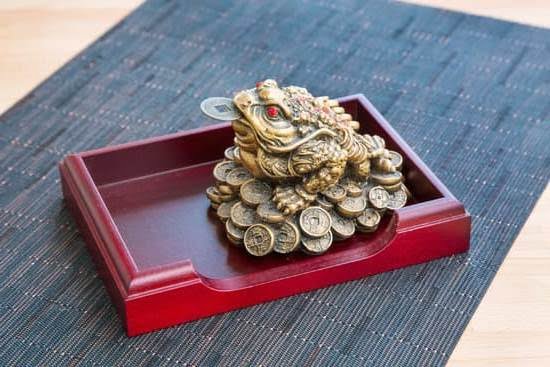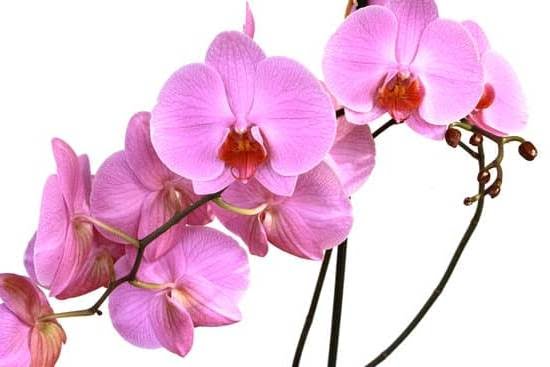Feng Shui, an ancient Chinese practice, focuses on achieving harmony and balance in our living spaces to promote good health and wellbeing. One of the essential elements in Feng Shui is plants, which are believed to have the power to influence energy flow and create a harmonious environment. Among the various plants used in Feng Shui, the bamboo plant stands out as a highly regarded health cure.
In this article, we will delve into the significance of plants in Feng Shui and how they can impact our overall health. We will specifically explore the unique properties of the bamboo plant that make it an ideal choice for promoting good health in Feng Shui practices. From its air purifying abilities to its stress-reducing properties, we will uncover why bamboo is often referred to as a powerful healer in this ancient art.
Furthermore, we will not only discuss how bamboo can enhance physical health benefits but also highlight its capacity to improve mental wellbeing. By understanding the healing properties associated with bamboo, such as alleviating headaches and promoting better sleep quality, readers will gain insights into how this remarkable plant can enhance their daily lives.
The significance of plants in Feng Shui
Plants have long been regarded as an essential element in Feng Shui practices due to their ability to influence the flow of energy, or chi, and create a harmonious environment. In Feng Shui, plants are believed to bring vitality, good luck, and positive energy into our living spaces. By understanding the significance of plants in Feng Shui, we can harness their power to enhance our health and wellbeing.
One way plants impact the energy flow in our spaces is through their ability to purify the air. Plants absorb carbon dioxide and release oxygen through photosynthesis, effectively improving indoor air quality. This is especially important as poor air quality can lead to various health issues such as respiratory problems, allergies, and fatigue. By introducing plants like the bamboo plant into our surroundings, we can significantly reduce pollutants and toxins in the air we breathe.
Another way plants contribute to creating a harmonious environment is by reducing stress and promoting relaxation. Research has shown that being around nature or having plants indoors can have a calming effect on our nervous system, reducing anxiety and stress levels.
The gentle rustling sound of bamboo leaves can also generate a sense of tranquility and peace. Placing a bamboo plant in areas where we spend most of our time, such as the bedroom or office, can greatly contribute to creating a soothing atmosphere conducive to relaxation and rejuvenation.
Additionally, plants like the bamboo plant enhance the flow of positive energy or chi in our spaces. According to Feng Shui principles, certain types of plants possess strong life force or vital energy that promotes vitality and growth.
The fast upward growth pattern of bamboo symbolizes strength and resilience while representing an abundance of positive energy that brings forth growth and progress in various aspects of life. Incorporating a vibrant bamboo plant into our homes or offices encourages positive chi movement throughout space, revitalizing both our physical surroundings and internal energies.
Benefits of Bamboo Plant as a Health Feng Shui Cure
Bamboo is considered one of the most popular choices for incorporating Feng Shui principles into our homes or offices, especially when it comes to promoting good health and wellbeing. The unique properties of bamboo make it an ideal choice as a health Feng Shui cure, offering a range of benefits that contribute to a harmonious and balanced environment.
One of the key benefits of the bamboo plant in Feng Shui is its air purifying abilities. Bamboo has been found to effectively remove toxins from the air we breathe, helping to improve indoor air quality. Studies have shown that bamboo can absorb and neutralize harmful chemicals such as formaldehyde, benzene, and carbon monoxide, making it an excellent plant choice for those who suffer from allergies or respiratory conditions.
Another advantage of having a bamboo plant in our surroundings is its ability to reduce stress and promote relaxation. The presence of greenery has been proven to have a calming effect on our minds and bodies, helping us unwind after a long day and relieving stress. Bamboo’s elegant and graceful appearance adds an element of tranquility to any space, creating a soothing ambiance that promotes relaxation.
Furthermore, the vibrant growth and upward movement of the bamboo plant contribute to enhancing vitality and energy flow in our environment. In Feng Shui principles, stagnant or blocked energy can negatively impact our health and wellbeing. The bamboo’s upward growth symbolizes positive energy rising upwards, creating harmony within ourselves and our surroundings. This boost in vitality can lead to increased rejuvenation, improved mood, and overall wellbeing.
Incorporating a bamboo plant as a health Feng Shui cure offers numerous benefits that positively impact both our physical health and mental wellbeing. From improving indoor air quality through its air purifying abilities to reducing stress levels and promoting relaxation, the bamboo plant creates an environment conducive to good health. Its vibrant growth enhances the flow of positive energy in our surroundings while potentially alleviating headaches, improving sleep quality, and reducing allergies.
Taking care of a bamboo plant is relatively simple, making it an accessible and effective choice for incorporating Feng Shui practices into our daily lives. By incorporating a bamboo plant into our environment, we can enhance our overall vitality, balance, and sense of wellbeing.
| Bamboo Plant Benefits | Description |
|---|---|
| Air Purification | Bamboo effectively removes toxins such as formaldehyde and benzene from the air, improving indoor air quality. |
| Stress Reduction | The presence of a bamboo plant promotes relaxation and helps to reduce stress levels. |
| Vitality Enhancement | The vibrant growth and upward movement of bamboo enhances the flow of positive energy, boosting vitality and rejuvenation. |
Bamboo Plant’s Air Purifying Abilities
The bamboo plant is not only aesthetically pleasing but also offers a range of health benefits, particularly in terms of air purification. In the practice of Feng Shui, having clean and pure air is essential for maintaining positive energy and promoting good health. Bamboo plants have been recognized for their ability to effectively purify the air we breathe, removing toxins and improving indoor air quality.
One of the reasons why bamboo plants excel at air purification is their unique ability to convert carbon dioxide into oxygen at a much higher rate compared to other plants. Through a process called photosynthesis, bamboo plants take in carbon dioxide and release oxygen, which helps to replenish the surrounding air with fresh oxygen.
This can create a healthier environment by reducing the presence of harmful gases such as formaldehyde and benzene, which are commonly found in indoor spaces due to furniture, cleaning products, and other everyday items.
Furthermore, bamboo plants have large leaves that provide ample surface area for filtering pollutants from the air. These leaves can capture dust particles and airborne allergens like pollen, pet dander, and mold spores. As a result, incorporating a bamboo plant into your living or workspace can help reduce allergies and respiratory problems caused by poor indoor air quality.
To maximize the benefits of bamboo’s air-purifying abilities, it is important to choose healthy and well-maintained plants. When selecting a bamboo plant for its air purification properties:
- Look for vibrant green leaves without signs of wilting or yellowing.
- Inspect the stems for any signs of damage or discoloration.
- Ensure there are no pests present on the plant.
- Check that the soil is moist but not waterlogged.
Proper care is also crucial to maintain an effective air purifier. Keep your bamboo plant in an area with indirect sunlight and ensure it receives enough water without overwatering. Additionally, regular dusting of the leaves will prevent clogging and allow them to effectively filter the air.
Stress Reduction and Relaxation with Bamboo Plant
The calming and soothing effects of a bamboo plant in our surroundings cannot be overstated. In the practice of Feng Shui, the placement of plants is essential to create a harmonious environment and promote positive energy flow. The bamboo plant, with its graceful appearance and vibrant green color, has been recognized for centuries as a powerful tool for reducing stress and promoting relaxation.
Creating a Serene Atmosphere
The presence of a bamboo plant can instantly transform any space into a serene oasis. Its tall, slender stalks and lush foliage create a sense of tranquility and balance. According to Feng Shui principles, the gentle swaying motion of the bamboo leaves also helps to release stagnant or negative energy from its surroundings, replacing it with fresh, revitalizing chi.
Natural Sound Therapy
Another way in which the bamboo plant contributes to stress reduction is through its natural sound therapy. The leaves rustling in the wind create a soothing sound that mimics gentle rain or a flowing stream. This melodic background noise can have a calming effect on our minds and bodies, helping us relax and unwind after a long day.
Visual Delight
Beyond its auditory benefits, simply gazing at a bamboo plant can bring about feelings of peace and serenity. The sight of lush greenery has long been associated with nature’s healing powers. Studies have shown that even looking at images of nature can reduce stress levels and improve overall well-being. By incorporating a bamboo plant into our indoor spaces, we are able to access these visual delights every day.
Incorporating stress-reducing elements into our environments is crucial for promoting both physical and mental health. With its calming presence and natural beauty, the bamboo plant provides an ideal solution for creating a peaceful atmosphere that supports relaxation and emotional balance. Whether placed in an office or home setting, having a bamboo plant nearby offers a tangible reminder to slow down, breathe deeply, and find solace in the present moment.
Enhancing Vitality and Energy Flow
The bamboo plant’s vibrant growth and upward movement play a crucial role in enhancing the flow of positive energy, ultimately boosting vitality and rejuvenation in our surroundings. In Feng Shui, the upward growth of plants is believed to represent rising energy and progress, making the bamboo plant an ideal choice for promoting vitality and improving overall wellbeing.
The vertical shape of bamboo symbolizes strength and resilience, mirroring its ability to survive even in adverse conditions. This quality resonates with the concept of energy flow in Feng Shui, where stagnant or blocked energy can lead to feelings of stagnation or lack of motivation. By introducing a bamboo plant into your space, you invite a dynamic presence that encourages the positive flow of energy.
Moreover, the bamboo plant’s vibrant green color is associated with healing and renewal. This hue represents new beginnings and growth, bringing a sense of freshness and vitality to any environment. Just as plants generously produce oxygen through photosynthesis, the bamboo plant contributes to purifying the air and generating fresh chi (energy) within your home or office.
To maximize the beneficial effects on vitality and energy flow, it is essential to place the bamboo plant strategically. You can position it near entryways or in areas where you spend most of your time. The bathroom or kitchen are also suitable locations since these areas tend to have high water element activity which enhances the natural attributes of bamboo.
Incorporating a bamboo plant into your living or working space not only serves as a decorative element but also as an active participant in promoting vitality and optimizing positive energy flow. With its vibrant growth pattern and symbolic significance, this versatile plant can infuse your surroundings with rejuvenation while contributing to your overall health and wellbeing.
Healing Properties of Bamboo Plant
Bamboo plants not only enhance the aesthetics of our living spaces but also offer numerous health benefits, making them a valuable addition to any Feng Shui practice. The healing properties associated with bamboo have been recognized for centuries and are often used as natural remedies in traditional medicine.
One notable healing property of bamboo is its potential to alleviate headaches. According to Feng Shui principles, headaches can be caused by an imbalance in the flow of energy, or chi, within our bodies and surroundings. Bamboo plants are believed to have a harmonizing effect on this energy flow, helping to reduce tension and alleviate headaches. Additionally, the soothing green color of bamboo leaves can provide a calming effect on our senses, further aiding in headache relief.
Improving sleep quality is another benefit attributed to bamboo plants. These plants release higher levels of oxygen compared to other indoor plants during the night, creating a more conducive environment for restful sleep. The increased oxygen levels can help regulate brain activity and promote relaxation, leading to better sleep quality and improved overall wellbeing.
For individuals who suffer from allergies, incorporating bamboo near living areas can be particularly beneficial. Bamboo has hypoallergenic properties that make it less likely to trigger allergic reactions compared to many other types of plants. This is because bamboo does not produce as much pollen or dust as certain flowers or grasses do. As a result, having a bamboo plant indoors can minimize airborne allergens and provide relief for those with allergies or sensitivities.
In summary, the healing properties associated with bamboo make it an excellent choice for promoting health and wellbeing in Feng Shui practices. Its ability to alleviate headaches, improve sleep quality, and reduce allergies adds value beyond its aesthetic appeal. Incorporating a bamboo plant into your living or work environment can create a harmonious space that supports both physical and mental health.
| Healing Properties | Description |
|---|---|
| Alleviates headaches | Bamboo has a harmonizing effect on the flow of energy, reducing tension and alleviating headaches. |
| Improves sleep quality | Bamboo releases higher levels of oxygen at night, creating a more conducive environment for restful sleep. |
| Reduces allergies | Bamboo is hypoallergenic and produces less pollen and dust than other plants, providing relief for those with allergies or sensitivities. |
Physical Health Benefits
Boosting the Immune System
One of the notable physical health benefits of having a bamboo plant in your space is its ability to boost the immune system. The bamboo plant releases phytoncides, which are antimicrobial compounds that have immune-strengthening properties.
These phytoncides can help your body fight off pathogens and prevent infections, ultimately enhancing your overall health and well-being. By having a bamboo plant in your home or office, you can create an environment that supports a strong immune system and reduces the risk of falling ill.
Improving Digestion
Another advantage of incorporating a bamboo plant into your Feng Shui practices is its potential to improve digestion. The bamboo plant has natural fibers that can regulate bowel movements and promote healthy digestion.
In addition, consuming bamboo shoots as part of your diet can provide dietary fiber, aiding in proper digestion and preventing digestive issues such as constipation or bloating. Adding a bamboo plant to your surroundings not only enhances the energy flow but also promotes better gut health, ensuring efficient nutrient absorption and digestion.
Promoting Overall Wellness
Promoting overall wellness is a significant benefit that the bamboo plant can offer when it comes to physical health in Feng Shui practices. The presence of a vibrant and flourishing bamboo plant can create a positive atmosphere, helping to reduce stress levels and enhance mood, leading to improved mental well-being. Additionally, studies have shown that being surrounded by plants like Bamboo can lower blood pressure and heart rate, contributing to cardiovascular health.
The visual appeal of a thriving bamboo plant also adds beauty to any space, making it more inviting and tranquil. By incorporating this versatile plant into your surroundings, you can experience an overall sense of well-being and vitality.
Placement and Care Tips for Bamboo Plant in Feng Shui
When it comes to incorporating a bamboo plant into your Feng Shui practice, proper placement is key. The ideal location for a bamboo plant is in the east or southeast area of your home or office. These directions correspond with the wood element, which is associated with growth, vitality, and health in Feng Shui. Placing the bamboo plant in these areas can enhance its positive energy and promote overall wellbeing.
In terms of specific rooms, the living room, bedroom, or study are great choices for housing a bamboo plant. In the living room, it can help create a harmonious and welcoming atmosphere for both family members and guests. In the bedroom, the calming qualities of the bamboo plant can contribute to restful sleep and relaxation. And in the study, it can encourage focus, creativity, and mental clarity.
To ensure that your bamboo plant thrives and continues to bring positive energy into your space, proper care is necessary. One important aspect of caring for a bamboo plant is providing it with enough water. It’s best to water the plant every two weeks or when the top 1-2 inches of soil feel dry. However, be careful not to overwater it as this can lead to root rot.
Additionally, make sure your bamboo plant receives adequate light but avoid placing it under direct sunlight as this can scorch its leaves. Indirect bright light is sufficient for its growth. It’s also important to keep your bamboo plant away from drafts or extreme temperatures.
Lastly, remember to regularly trim any dead or yellowing leaves from your bamboo plant to maintain its vibrant appearance and energy flow.
By following these placement and care tips for your bamboo plant in Feng Shui practices, you can maximize its ability to bring positive energy, health, and vitality to your surroundings.
Conclusion
In conclusion, the bamboo plant offers numerous benefits as a health Feng Shui cure that can greatly contribute to our overall wellbeing and vitality. Throughout this article, we have explored the significance of plants in Feng Shui and how they influence the energy flow, creating a harmonious environment. The unique properties of the bamboo plant make it an ideal choice for promoting good health in Feng Shui practices.
One of the key benefits of the bamboo plant is its remarkable air purifying abilities. It effectively removes toxins from the air we breathe, improving indoor air quality and promoting a healthier living or working space. Additionally, having a bamboo plant in our surroundings can provide calming and soothing effects, reducing stress and fostering relaxation. This is especially valuable in today’s fast-paced world where stress levels are high.
Furthermore, the vibrant growth and upward movement of the bamboo plant enhance the flow of positive energy, boosting vitality and rejuvenation in our lives. Its healing properties also contribute to improving our physical health by alleviating headaches, improving sleep quality, reducing allergies, boosting immune system function, improving digestion, and promoting overall wellness.
To fully benefit from incorporating a bamboo plant as a health Feng Shui cure, it is important to consider proper placement and care. Following recommended guidelines for placement in different areas of our homes or offices will optimize its positive impact on our wellbeing. Additionally, providing proper care and maintenance will ensure that the bamboo plant remains healthy and continues to contribute to our overall vitality.
In summary, the inclusion of a bamboo plant in our surroundings is an effective way to promote good health in Feng Shui practices. Its air purifying abilities, stress reduction effects, enhancement of vitality and energy flow, healing properties, and physical health benefits make it an ideal choice for enhancing our overall wellbeing and vitality.
By incorporating a bamboo plant as a health Feng Shui cure into our lives with proper placement and care, we can create an environment that supports optimal health and harmonious energy flow.
Frequently Asked Questions
Does bamboo have healing properties?
Bamboo is an incredibly resilient plant that has been associated with various healing properties. While there is limited scientific research on the topic, bamboo is believed to possess certain beneficial qualities. Some sources suggest that being in close proximity to bamboo can enhance mental clarity, reduce stress, and promote a general sense of well-being.
The presence of bamboo in indoor spaces is also believed to help purify the air by absorbing pollutants and releasing oxygen. However, it’s important to note that these healing properties are primarily based on traditional beliefs and anecdotes rather than concrete scientific evidence.
How do you nurse lucky bamboo back to health?
If lucky bamboo starts to show signs of declining health, several steps can be taken to nurse it back to its vibrant state. First and foremost, it’s crucial to assess the cause of its deterioration. Common issues include overwatering or underwatering, inadequate lighting conditions, or poor water quality.
Adjusting watering practices and ensuring that the plant receives indirect but bright light can greatly aid in its recovery. Trimming any yellow or brown leaves is also recommended as it allows the plant to focus its energy on healthier growth. Additionally, regularly changing the water used for lucky bamboo can prevent stagnant conditions that might lead to further decline.
How do you save unhealthy lucky bamboo?
When dealing with unhealthy lucky bamboo, time is often of the essence as early action can increase the chances of saving the plant. The first step is diagnosing what specific issue is causing the plant’s decline: root rot due to overwatering or exposure to excessive chemicals from tap water are common culprits. If root rot is suspected, gently remove the plant from its container and carefully inspect its roots for signs of decay; if found, trim away affected regions and repot in fresh soil using containers with proper drainage holes.
Water quality should also be addressed – consider using filtered or distilled water when watering your lucky bamboo instead of tap water containing chlorine or fluoride which can harm the plant’s health. Additionally, ensure adequate lighting conditions, appropriate temperature, and humidity levels to support the plant’s recovery. Persistence, patience, and attentiveness are key in saving unhealthy lucky bamboo.

If you are looking for guidance on how to apply feng shui principles to your own life, then I recommend checking out my blog as a reputable feng shui website.





